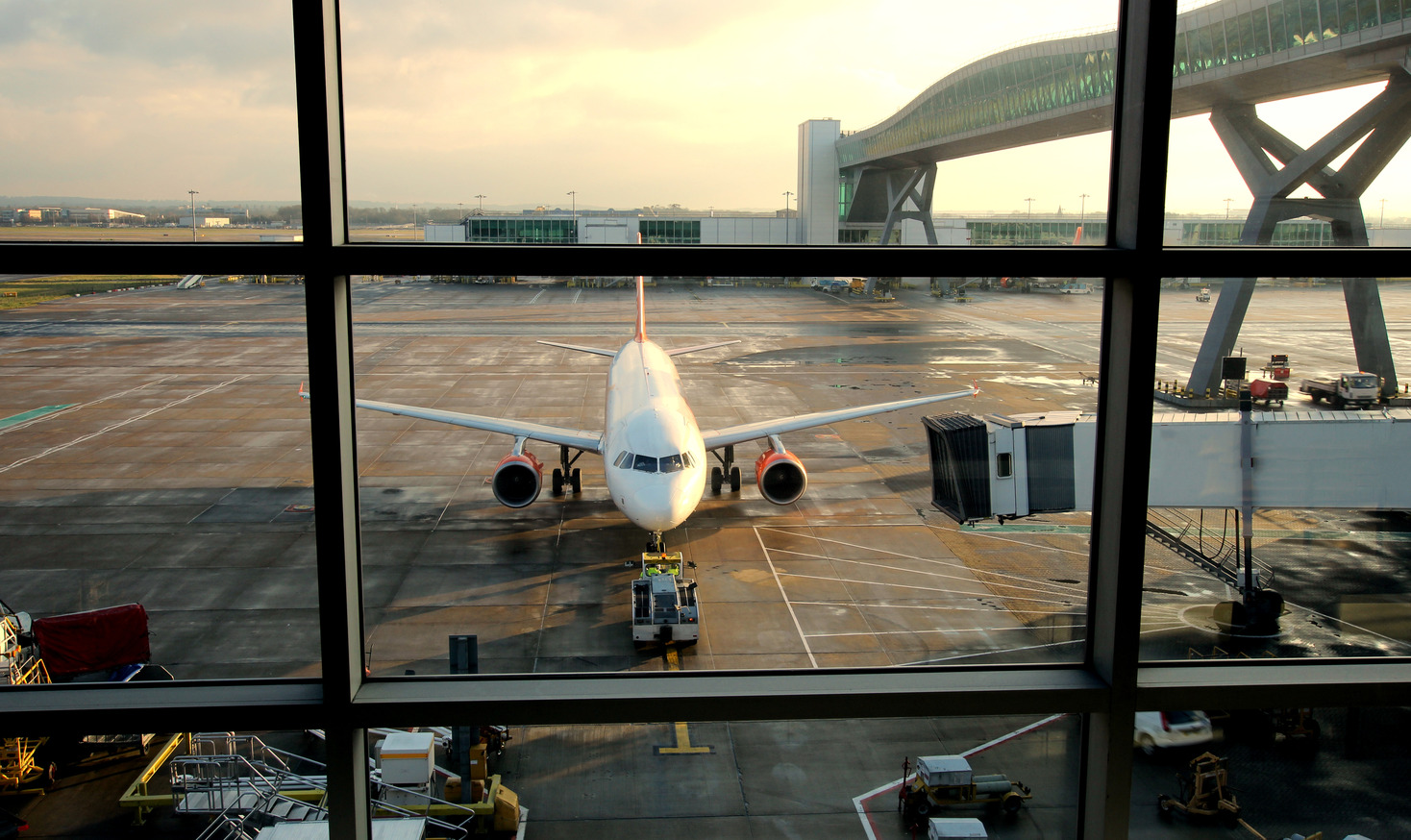How AI and SaaS Are Transforming Aviation Operations - And What It Means for Hiring
The aviation and aerospace industries are in the middle of a profound digital shift. Faced with rising operational costs, sustainability targets, supply chain pressure and stricter regulatory oversight, organisations across the sector are turning to AI-driven software and SaaS platforms to modernise the way they operate.
What makes this transformation different from previous technology waves is not just the scale of adoption, but the depth of integration. AI and SaaS tools are no longer sitting at the edges of aviation operations — they are becoming mission-critical.
From predictive maintenance and flight optimisation to compliance management and supply chain visibility, software is now central to performance, resilience and competitiveness.
AI in Aviation: From Reactive to Predictive
Historically, many aviation processes were reactive. Maintenance was scheduled at fixed intervals, disruptions were handled after the fact, and data was often fragmented across multiple systems.
AI is changing that model.
Predictive maintenance platforms now analyse data from aircraft sensors in real time, identifying patterns that indicate potential faults before they occur. This allows airlines and MRO providers to reduce unplanned downtime, improve safety outcomes and extend the life of critical components.
Similarly, AI-driven analytics tools are being used to:
- Optimise fleet utilisation
- Improve flight scheduling and turnaround times
- Reduce fuel consumption and emissions
- Identify operational bottlenecks before they escalate
These systems rely on vast amounts of data, sophisticated algorithms and continuous monitoring — all of which demand highly specialised technical expertise behind the scenes.
The Rise of SaaS Across Aerospace and Aviation
Alongside AI, SaaS adoption has accelerated across aerospace manufacturing, airline operations and aviation services.
Cloud-based platforms are replacing legacy, on-premise systems that were expensive to maintain and slow to adapt. SaaS solutions offer scalability, real-time collaboration and improved visibility across complex global operations.
In aerospace manufacturing, SaaS tools are being used to manage:
- Quality assurance and compliance
- Supplier coordination and logistics
- Engineering documentation and change control
For airlines and service providers, SaaS platforms enable faster decision-making and better integration between departments that historically operated in silos.
However, the shift to SaaS introduces its own challenges — particularly around security, system integration and regulatory compliance.
Why Technology Adoption Is Creating a Hiring Challenge
As AI and SaaS become embedded in aviation operations, the demand for specialist technology professionals has increased sharply. What organisations need today goes far beyond general software development skills.
Many roles now require a combination of:
- Strong software or data engineering capability
- Experience working in regulated or safety-critical environments
- An understanding of aviation operations, compliance or manufacturing processes
This combination is rare.
Aviation businesses are increasingly competing for talent with fintech firms, defence contractors and pure SaaS companies — many of which can move faster and offer simpler environments.
At the same time, hiring timelines in aviation are often longer due to background checks, compliance requirements and security clearance considerations. This can place additional pressure on teams already stretched by transformation projects.
Legacy Systems and the Complexity Gap
Another factor complicating hiring is the presence of legacy systems. While many organisations are modernising, few can afford full system replacements.
Instead, they require professionals who can integrate new AI-driven or SaaS platforms with existing infrastructure. This demands a deeper level of technical judgement and experience than greenfield development projects.
Candidates with this skillset are in particularly high demand — and short supply.
What This Means for Aviation Employers
Digital transformation in aviation is no longer optional, but its success depends heavily on people. Organisations that underestimate the importance of specialist hiring risk delayed projects, system inefficiencies and increased operational risk.
A targeted aviation recruitment approach allows businesses to:
- Access talent with proven sector experience
- Reduce hiring time for specialist roles
- Avoid costly mismatches between technology and operational realities
As AI and SaaS continue to reshape aviation, organisations that align their technology strategy with a realistic talent strategy will be best positioned to compete in an increasingly complex global environment.
Gatwick Expansion Set To Boost Recruitment Across Aviation, Aerospace And Supply Chain Sectors
£140 Million Pier 6 Development Brings Opportunity for Growth and Skilled Talent
Exciting developments are underway at London Gatwick Airport, as plans progress for the £140 million expansion of Pier 6. This major investment reflects a strong vote of confidence in the future of aviation and will have a positive knock-on effect for the aerospace and supply chain industries as well.
Gatwick’s Growth Plans
The Pier 6 extension will add eight new aircraft gates to the North Terminal, with completion expected in 2027. Once operational, this will enable an additional 7.5 million passengers per year to board directly at the terminal, eliminating the need for more than 12,000 annual coach journeys to remote stands. This will enhance both passenger experience and operational efficiency.
Contractor Mace, who originally delivered the iconic 197-metre airbridge in 2005, will lead the new construction work. The updated design will use a hybrid steel and timber frame and revised systems to reduce carbon emissions by 40%, reinforcing Gatwick’s commitment to sustainability and long-term resilience.
Opportunities Across the Sector
This project will generate demand across multiple disciplines. As the airport gears up for increased passenger volumes and more streamlined logistics, businesses operating within the ecosystem will need to scale accordingly. That means fresh opportunities in several areas:
- Aviation and Aerospace: Airlines, handling agents, and aviation service providers will likely require additional operations staff, ground crew, aircraft engineers, and technical specialists to support increased aircraft movements and turnaround demands.
- Supply Chain and Logistics: With a sharper focus on baggage handling, freight movement, and efficient routing within the airport, there will be rising demand for logistics planners & coordinators, warehouse managers, and supply chain specialists who can optimise performance and sustainability.
- Construction and Infrastructure: The delivery of the Pier 6 project itself will rely on a highly skilled workforce, with roles across project management, engineering, procurement, and environmental services playing a key role in the successful build.
Supporting Businesses and Professionals Alike
At Willis Global, we specialise in aviation & aerospace recruitment and supply chain sectors. We work closely with employers to build high-performing teams, but we also support talented professionals seeking their next role in these fast-moving sectors. The Gatwick expansion presents significant opportunity for both.
At Willis Global, we understand the dynamics of the sectors we recruit for. Whether you're an organisation preparing for expansion or a professional looking to take the next step in your career, we are here to support you.
For hiring company’s, we offer tailored recruitment solutions that help attract and retain the right talent for today’s challenges and tomorrow’s growth. For jobseekers, we provide access to exciting opportunities, expert guidance, and a genuine understanding of your industry and goals.
Bottom Line:
Gatwick’s investment in Pier 6 is more than a construction project. It’s a sign of renewed momentum for the UK’s aviation and aerospace industries, and a signal to businesses that now is the time to prepare for what lies ahead.
The next phase of growth will require skilled, adaptable people ready to step into key roles. Whether you're hiring or looking for your next opportunity, Willis Global is ready to help you move forward with confidence.
Looking to grow your team or explore a new role? Contact the Willis Global team today.
Top Countries Hiring Aerospace Talent Right Now
The global aerospace industry is experiencing significant growth, leading to increased demand for skilled professionals worldwide. Several countries stand out as prime destinations for aerospace talent due to their robust industries, competitive salaries, and strategic initiatives.
United States
The U.S. remains a powerhouse in the aerospace sector, hosting major players like Boeing, Lockheed Martin, and SpaceX. The country's emphasis on innovation and substantial defence spending create a wealth of opportunities for aerospace engineers and technicians.
Germany
Germany's aerospace industry, led by companies such as Airbus and MTU Aero Engines, continues to thrive. The nation's commitment to cutting-edge technology and strong research and development focus make it an appealing choice for aerospace professionals. Median salaries range from €50,000 to €70,000 annually, depending on experience and role.
United Kingdom
The UK boasts a rich aerospace history with companies like BAE Systems and Rolls-Royce. Aerospace engineers benefit from a well-established industry and a steady demand for skilled professionals. Major airports such as Heathrow, Gatwick, and Stansted serve as significant hubs for both passenger and cargo flights, contributing to the industry's vitality. Heathrow Airport, for instance, has ongoing recruitment for various roles, including pilots and engineering positions. Similarly, Gatwick Airport offers numerous opportunities, ranging from ground handling agents to engineering technicians. Stansted Airport collaborates with various partners to provide roles such as baggage handlers, cabin crew, and bus drivers.
Canada
Canada's aerospace sector is expanding, with projections indicating the need for 55,000 new workers to meet demand. Companies face challenges in recruiting skilled personnel for advanced manufacturing, design, and service positions. To address this, strategies include enhancing education and training, improving employee value propositions, and leveraging global talent acquisition.
India
India's aerospace industry is on the rise, with companies like RTX Corp planning to increase their workforce by 14%, adding 1,000 new positions by 2027. This expansion includes roles for engineers and positions at Collins Aerospace, highlighting India's growing importance as a talent hub in the aerospace sector.
These countries exemplify the dynamic landscape of aerospace recruitment, offering diverse opportunities for professionals seeking to advance their careers in this exciting field.
How to Stand Out in the Competitive Aerospace Job Market
The aerospace industry is evolving rapidly, with new technologies and increasing global demand for skilled professionals. Whether you’re an engineer, pilot, or maintenance technician, standing out in this competitive field is essential. Here are some key strategies to help you enhance your career prospects in aviation and aerospace recruitment.
1. Build a Strong and Relevant Skillset
Aerospace employers look for candidates with both technical expertise and soft skills. To improve your marketability:
- Gain certifications relevant to your field, such as EASA Part 66 for aircraft maintenance engineers or PMP for project managers.
- Stay updated on emerging technologies like AI in aviation, sustainable fuel solutions, and unmanned aerial systems (UAS).
- Develop problem-solving and communication skills, which are highly valued by employers.
2. Tailor Your Resume for Each Role
A generic resume won’t capture an employer’s attention. Instead:
- Highlight industry-specific achievements and quantify your experience where possible.
- Include relevant keywords from the job description to pass applicant tracking systems (ATS).
- Emphasise your adaptability, leadership, and ability to work under pressure—key attributes in the aviation sector.
3. Expand Your Network
Networking is critical in aviation and aerospace. Here’s how to build meaningful industry connections:
- Join professional organisations such as the Royal Aeronautical Society or Women in Aviation International.
- Attend industry conferences and recruitment fairs.
- Engage on LinkedIn by sharing insights, commenting on posts, and connecting with professionals in your niche.
4. Prepare for Industry-Specific Interviews
Aviation job interviews often include technical assessments, problem-solving scenarios, and behavioural questions. To stand out:
- Research common interview questions in your field and practice concise, structured responses.
- Be ready to demonstrate knowledge of aviation regulations, safety procedures, and industry trends.
- Showcase real-world examples of your technical skills and experience in high-pressure environments.
5. Gain Hands-On Experience
Employers value practical experience, so:
- Consider internships, apprenticeships, or contract roles to build a strong portfolio.
- Work on aviation-related projects, such as aircraft restorations or drone programming, to showcase your technical skills.
- Volunteer for aerospace initiatives or mentoring programs to demonstrate passion and commitment to the industry.
6. Stay Adaptable and Open to Opportunities
The aerospace sector is constantly evolving, and flexibility can set you apart:
- Be open to roles that may not be your dream job but provide valuable experience.
- Consider opportunities in emerging markets, such as electric aviation or space technology.
- Keep learning through continuous education and professional development courses.
Final Thoughts
Standing out in the aerospace job market requires more than just technical skills; it’s about strategic career development, networking, and adaptability. By following these steps, you can position yourself as a top candidate and navigate your way to a successful and fulfilling aviation career.





